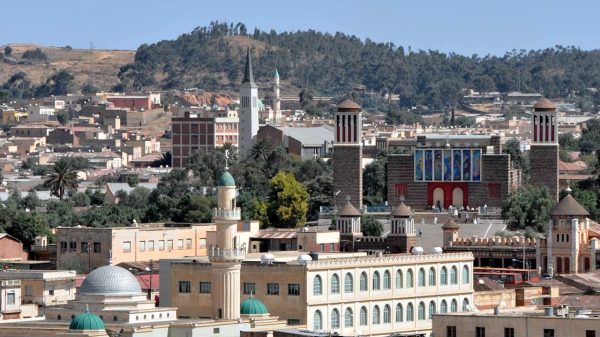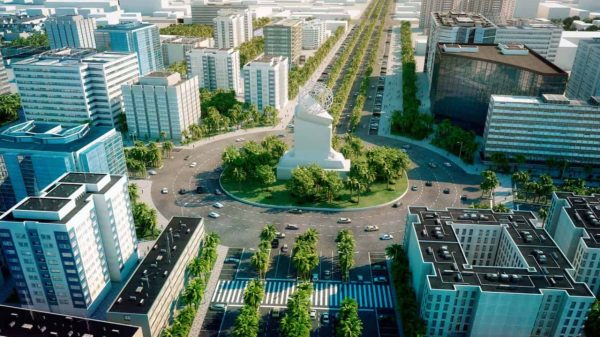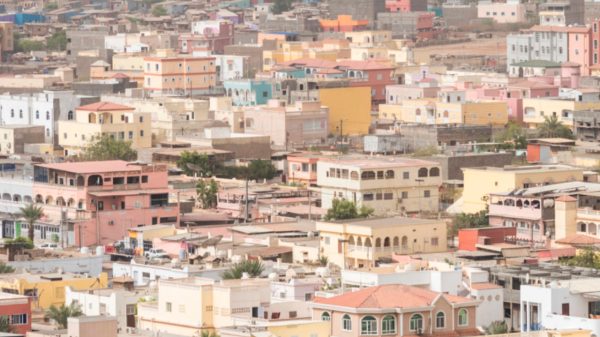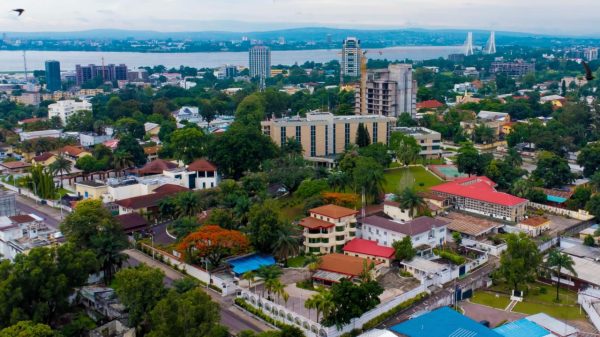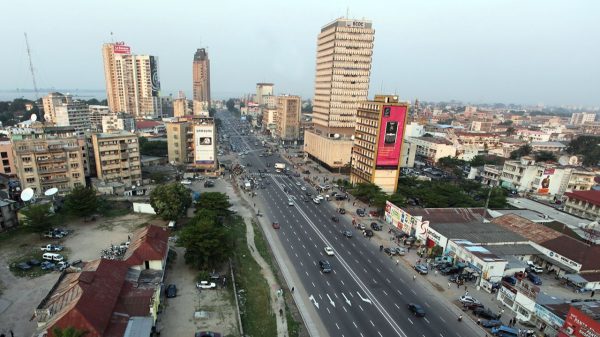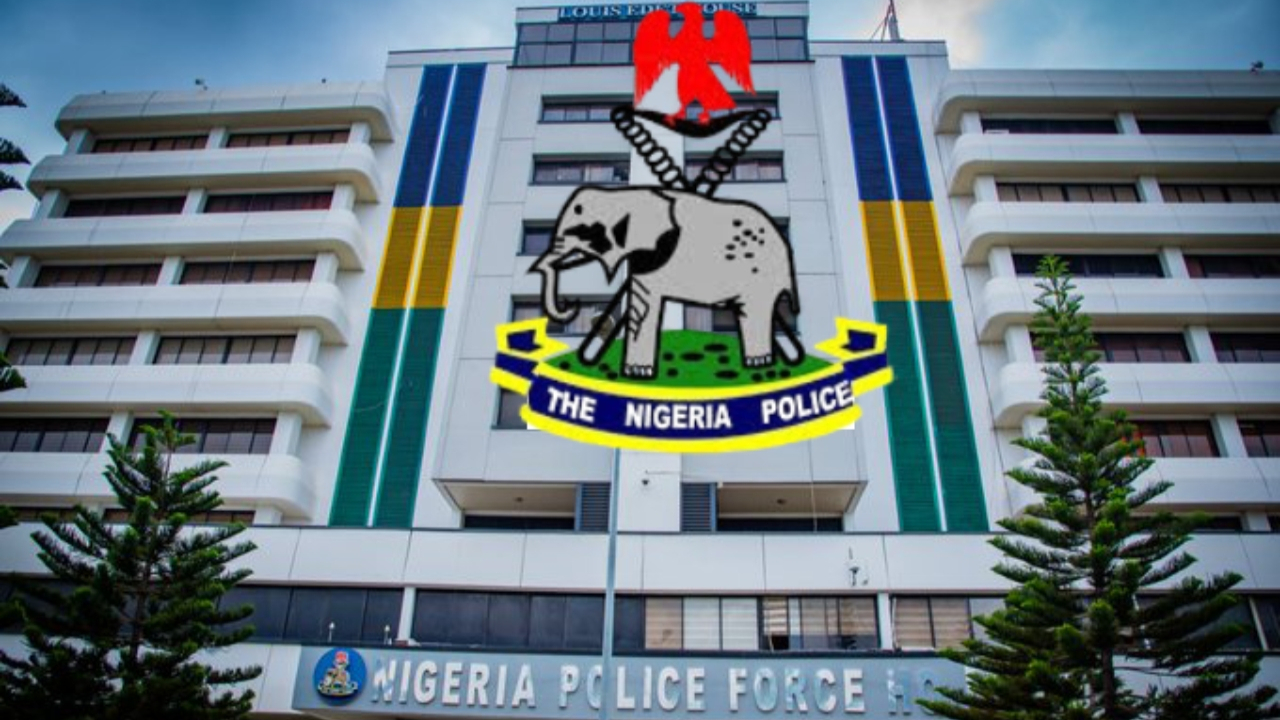The Nigerian Police Force operates with a clear hierarchical structure, comprising both commissioned and non-commissioned officers, each with distinct roles and responsibilities.
Salaries within the force vary significantly based on rank, reflecting the level of experience and duties associated with each position. Recent adjustments in the salary structure aim to improve the welfare of officers. This overview will delve into the specific ranks within the Nigerian Police Force and provide insight into their corresponding salary scales and allowances as of April 2025.
1. The Nigerian Police Force
The Nigerian Police Force (NPF) stands as the primary law enforcement agency across the Federal Republic of Nigeria, with an operational presence spanning all 36 states and the Federal Capital Territory (FCT).
Established in 1930, the NPF is tasked with a comprehensive mandate that includes the prevention and detection of crime, the apprehension of offenders, the preservation of law and order, the protection of life and property, and the due enforcement of all laws and regulations within the nation’s borders. The command and control of this extensive organization rests with the Inspector-General of Police (IGP), a position currently held by IGP Kayode Egbetokun. Administratively, the NPF is structured into 36 state commands, along with the FCT command, which are further grouped into 17 operational zones and overseen by 8 administrative organs. Recognizing the growing security challenges, there are significant initiatives in progress to expand the force from its present strength of over 370,000 personnel to a projected figure of 650,000 officers.
Given the immense scale of the NPF, both in its current operational capacity and its ambitious expansion plans, a thorough understanding of its organizational framework and compensation structure is of paramount importance. This knowledge is not merely relevant for internal administrative purposes but also holds significant implications for effective resource allocation, meticulous budget planning, and ensuring the overall welfare of a substantial workforce. Furthermore, appreciating the historical context of the NPF’s establishment and its subsequent evolution provides an essential perspective when evaluating the rationale and impact of current compensation strategies. The capacity of the NPF to effectively carry out its crucial duties is intrinsically linked to its ability to attract, retain, and adequately compensate its personnel.

2. Hierarchy of Ranks in the Nigerian Police Force
The Nigerian Police Force operates under a clearly defined hierarchical structure, which dictates the lines of authority, responsibility, and career progression within the organization. This structure is broadly divided into two main categories: non-commissioned officers and commissioned officers.
The non-commissioned officers form the foundational ranks of the NPF, typically focusing on frontline operational duties. The hierarchy within this category begins with the entry-level rank of Recruit, representing individuals undergoing initial training to become police officers. Upon successful completion of training, recruits are promoted to the rank of Constable. Progression through the non-commissioned ranks continues with Corporal, followed by Sergeant, and culminating in the rank of Sergeant Major, which is the highest rank attainable within the non-commissioned cadre.
The commissioned officers constitute the more senior leadership within the NPF, typically holding positions that involve greater command responsibilities and strategic oversight. The hierarchy within this category commences with the rank of Inspector of Police. Subsequent ranks in ascending order of seniority include Assistant Superintendent of Police (ASP), Deputy Superintendent of Police (DSP), Superintendent of Police (SP), Chief Superintendent of Police (CSP), Assistant Commissioner of Police (ACP), Deputy Commissioner of Police (DCP), and Commissioner of Police (CP). The senior leadership of the force is further composed of Assistant Inspector-General of Police (AIG), Deputy Inspector-General of Police (DIG), and finally, the highest rank within the NPF, the Inspector-General of Police (IGP). Entry into the commissioned officer cadre can occur at the level of Cadet Inspector or Cadet Assistant Superintendent of Police, depending on the qualifications and entry requirements met by the individual.
The distinction between these two categories is significant, often reflecting differences in the educational qualifications required for entry, the nature of training received, and the scope of responsibilities associated with each rank. Commissioned officers typically undergo more extensive training and are entrusted with greater leadership roles and decision-making authority compared to their non-commissioned counterparts. This structural differentiation also forms a fundamental basis for the NPF’s salary and benefits framework.
3. Detailed Salary Breakdown by Rank
The compensation structure within the Nigerian Police Force is not uniform across all ranks but rather is differentiated to reflect the level of responsibility and experience associated with each position. Understanding this detailed salary breakdown is crucial for appreciating the financial aspects of service within the NPF.
Initial insights into the salary structure can be gleaned from data indicating the basic monthly salaries across various ranks. However, a more comprehensive understanding emerges from the “New Consolidated Police Salary Structure (CONPOSS) with 20% chart (Effective January 2022)”. This structure introduces the concept of multiple “steps” or grade levels within each rank, signifying that an officer’s salary can vary based on their years of service, performance evaluations, or specific qualifications held. For instance, within the rank of Police Constable II, an officer at Step 1 earns a different monthly salary compared to an officer at Step 10. Similarly, even at the highest level, the Inspector-General of Police’s compensation might vary based on specific grade levels within that rank.
Historically, the remuneration of NPF officers has been a subject of discussion, with comparisons indicating that they have sometimes been among the lower paid within Nigeria’s security sector. This context underscores the significance of recent salary revisions and the introduction of allowances aimed at improving the overall financial well-being of police personnel. The CONPOSS 2022 structure, which incorporated a 20% peculiar allowance, represented a notable upward adjustment in the salary scales, reflecting a commitment to enhancing the compensation package for those serving in the NPF.
To provide a clearer overview of the basic salary structure, the following table presents the monthly salary ranges for various ranks within the Nigerian Police Force, based on the CONPOSS 2022 data, which includes the 20% peculiar allowance.
Nigerian Police Force Ranks and Basic Salaries (Monthly, as per CONPOSS 2022, including 20% Peculiar Allowance)
| Rank | Monthly Salary Range (Gross Salary Less Pension, Step 1 – Highest Step) |
| Police Recruit | ₦11,378 |
| Police Constable II | ₦68,262.29 – ₦75,224.48 |
| Police Constable I | ₦69,524.55 – ₦78,081.71 |
| Police Corporal | ₦71,809.19 – ₦82,144.58 |
| Police Sergeant | ₦77,974.65 – ₦98,193.61 |
| Sergeant Major | ₦96,216.19 – ₦123,370.20 |
| Inspector II/Cadet Inspector | ₦119,693.87 – ₦143,123.42 |
| Inspector of Police | ₦87,135.10 |
| Assistant Superintendent of Police II | ₦219,736.63 – ₦251,400.42 |

| Assistant Superintendent of Police I | ₦239,210.28 – ₦293,125.15 |
| Deputy Superintendent of Police | ₦259,706.29 – ₦301,712.33 |
| Superintendent of Police | ₦276,759.05 – ₦321,170.21 |
| Chief Superintendent of Police | ₦338,759.83 – ₦393,584.48 |
| Asst. Commissioner of Police | ₦382,860.45 – ₦447,459.47 |
| Deputy Commissioner of Police | ₦420,772.22 – ₦477,781.85 |
| Commissioner of Police | ₦849,977.67 – ₦960,137.01 |
| Assistant Inspector-General of Police | ₦867,552.16 – ₦1,318,468.87 |
| Deputy Inspector-General of Police | ₦1,405,277.58 – ₦1,849,057,45 |
| Inspector-General of Police | ₦1,543,960.95 – ₦1,987,396.61 |
Note: The annual salary can be estimated by multiplying the monthly salary by 12.
4. Allowances, Bonuses, and Additional Benefits:
Beyond the basic salary structure, officers within the Nigerian Police Force are entitled to a variety of allowances and benefits that contribute significantly to their overall compensation package and welfare. These additional components recognize the unique demands and potential risks associated with police work.
Several types of allowances have been identified as being applicable to NPF officers. These include rent allowance, provided to officers who are not accommodated in government housing; utility allowance, intended to
cover expenses such as electricity and water; hazard allowance, which acknowledges the high-risk nature of certain police duties; uniform maintenance allowance, to assist with the upkeep of official attire; and transport allowance, to help officers with commuting costs. The specific amounts allocated for these allowances can vary depending on the officer’s rank and the specific responsibilities of their role.
In a significant move to enhance the welfare of police personnel, the Federal Government approved an increase in the rent subsidy to 40% of the Consolidated Police Salary Structure (CONPOSS) in 2021. This adjustment substantially increased the housing allowance for eligible officers. Additionally, a shift duty allowance of 6% of the take-home pay was introduced for officers on Grade Levels 01-14, along with supervisors’ allowances for those at Grade Level 15 and above, recognizing the varying work schedules and responsibilities within the force. The duty tour allowance was also increased to 6% of the new take-home pay, providing better compensation for officers required to travel for official assignments. Furthermore, the introduction of a “peculiar allowance,” amounting to 20% of the basic consolidated salary, in January 2022, was a direct measure to boost the overall take-home pay and morale of all police officers.
Beyond these regular allowances, the NPF also provides financial benefits in specific circumstances. Notably, substantial funds have been approved for the payment of outstanding death benefits to the families of deceased officers, as well as for uninsured personnel benefits and burial expenses. These provisions offer crucial financial support to officers and their families during challenging times. While specific details on performance-based bonuses within the NPF are not extensively covered in the provided material, the general concept of reward systems in organizations suggests that such incentives could potentially exist as part of a broader strategy to motivate and recognize exceptional service within the force.
Official announcements and news reports serve as key sources of information regarding the specifics and implementation of these various allowances and benefits. The government’s commitment to ensuring that officers receive their entitlements is further underscored by initiatives to monitor and evaluate the implementation of these approved benefits.
5. Recent Salary Structure Changes and Updates (2024):
The compensation structure of the Nigerian Police Force has undergone further significant changes in recent times, demonstrating an ongoing effort to improve the financial well-being of its personnel.
A notable development in 2024 was the approval and implementation of a salary increase ranging from 25% to 35% for police officers under the Consolidated Police Salary Structure (CONPOSS). This substantial increase, which took effect on January 1, 2024, was part of a broader initiative to raise the salaries of various public servants and members of the armed forces. The Office of the Accountant General of the Federation was actively involved in confirming the necessary budgetary provisions for this increment, indicating a firm commitment to its implementation. This significant upward adjustment in salaries is expected to have a positive impact on the morale and financial stability of police officers across all ranks.
Prior to this, in January 2022, the introduction of a “peculiar allowance” equivalent to 20% of the basic consolidated salary marked another key enhancement to the NPF’s compensation package. This allowance was specifically designed to provide an immediate boost to the take-home pay of all police officers and improve their overall morale. The salary figures presented in the CONPOSS 2022 data appear to already reflect this 20% peculiar allowance, indicating its integration into the standard salary framework.
Looking ahead, potential future changes to the NPF’s salary structure may arise from ongoing developments related to the national minimum wage. In July 2024, the National Assembly passed a bill to increase the national minimum wage from N30,000 to N70,000 and to shorten the review period for future adjustments. This significant increase at the base level of the national wage structure could have implications for the entry-level salaries within the Nigerian Police Force and may necessitate further adjustments across all ranks to maintain appropriate pay differentials. Additionally, there are ongoing efforts to compare and potentially align the salaries of paramilitary officers with those of the Police, suggesting a broader review of compensation within Nigeria’s security sector that could lead to further revisions in the future.

The Nigerian Police Force operates with a well-defined hierarchical structure that includes both commissioned and non-commissioned officers, each with varying levels of responsibility and authority. The compensation framework for these officers is based on the Consolidated Police Salary Structure (CONPOSS), which features multiple steps or grade levels within each rank, allowing for salary progression based on experience and seniority. In addition to their basic salaries, NPF officers are entitled to a range of allowances, including those for housing, transportation, hazard exposure, utilities, uniform maintenance, and shift duties, which collectively enhance their overall remuneration. A significant “peculiar allowance” of 20% of the basic consolidated salary was introduced in January 2022, further boosting the take-home pay of all police personnel. Moreover, a substantial salary increase, ranging from 25% to 35%, was implemented across the CONPOSS in January 2024, demonstrating a continued commitment to improving the financial well-being of police officers.
These recent enhancements to the compensation package suggest a focused effort by the Nigerian government to improve the welfare of its police force. Adequate and competitive remuneration is a critical factor in fostering higher morale among law enforcement personnel, potentially reducing the risk of corruption, and ultimately contributing to a more effective Nigerian Police Force capable of fulfilling its vital role in maintaining law and order and ensuring public safety across the nation. The ongoing developments related to the national minimum wage indicate that the salary structure of the NPF may be subject to further adjustments in the future. Continued attention to the compensation and welfare of police officers will be crucial for sustaining a motivated, efficient, and ethical police force that effectively serves the Nigerian people.
Subscribe to our Newsletter
Stay updated with the latest trends in African Pop Culture!











